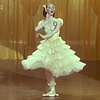You need to sign in or sign up before continuing.
Take a photo of a barcode or cover
"Do you recognize an external force?"
No matter how hard you try to escape, the past always comes back in a thuggish manner and brings back the worst inhibitions.
No matter how hard you try to escape, the past always comes back in a thuggish manner and brings back the worst inhibitions.
emotional
reflective
medium-paced
challenging
dark
tense
fast-paced
Plot or Character Driven:
Character
Strong character development:
Complicated
Loveable characters:
No
Diverse cast of characters:
No
Flaws of characters a main focus:
Complicated
Bad aftertaste. Lingering, sticky feeling of discomfort. Oh, poor Stan.
“We don’t carry labels on our chests, and even though they are continually fixed to us by others, they convince nobody. The desire for verification on the part of all of us, with regard to our own experience and the experience of others, is understandable but cannot always be satisfied. I suggest there can be no hard distinctions between what is real and what is unreal, nor between what is true and what is false. A thing is not necessarily either true or false; it can be both true and false. A character on the stage who can present no convincing argument or information as to his past experience, his present behaviour or his aspirations, nor give a comprehensive analysis of his motives is as legitimate and as worthy of attention as one who, alarmingly, can do all these things. The more acute the experience the less articulate its expression.” (from the Introduction by Pinter)
Like most of Pinter's work, reading it once is enough. I won't ever come back to it again. I think Pinter's work is an acquired taste, but because I've read [b:The Homecoming|334731|The Homecoming|Harold Pinter|https://i.gr-assets.com/images/S/compressed.photo.goodreads.com/books/1388285415l/334731._SY75_.jpg|491264] , this didn't shock me too much. I can't say which one is more unsettling/uncomfortable to read, but I prefer 'The Homecoming' a lot more.
A lecturer I had in uni. 'vaguely' knew Pinter - as in they were connected through mutual friends or something like that. Apparently he wasn't a very likeable person; he was that friend that one had to 'tolerate', but didn't have the heart to dump. I think what I like about Pinter's work - or to be more specific - I think what draws me in - is how messed up his characters are. I don't think it's possible to 'stan' any of his characters. And this reminds me of [b:Wuthering Heights|6185|Wuthering Heights|Emily Brontë|https://i.gr-assets.com/images/S/compressed.photo.goodreads.com/books/1587655304l/6185._SY75_.jpg|1565818] - Emily Brontë's legendary masterpiece. Pinter is certainly not my favourite playwright of the absurdist genre, but I will still continue reading his work. I will willingly, spend precious time tolerating him. Pinter's a witch, I tell ya.
“We don’t carry labels on our chests, and even though they are continually fixed to us by others, they convince nobody. The desire for verification on the part of all of us, with regard to our own experience and the experience of others, is understandable but cannot always be satisfied. I suggest there can be no hard distinctions between what is real and what is unreal, nor between what is true and what is false. A thing is not necessarily either true or false; it can be both true and false. A character on the stage who can present no convincing argument or information as to his past experience, his present behaviour or his aspirations, nor give a comprehensive analysis of his motives is as legitimate and as worthy of attention as one who, alarmingly, can do all these things. The more acute the experience the less articulate its expression.” (from the Introduction by Pinter)
Like most of Pinter's work, reading it once is enough. I won't ever come back to it again. I think Pinter's work is an acquired taste, but because I've read [b:The Homecoming|334731|The Homecoming|Harold Pinter|https://i.gr-assets.com/images/S/compressed.photo.goodreads.com/books/1388285415l/334731._SY75_.jpg|491264] , this didn't shock me too much. I can't say which one is more unsettling/uncomfortable to read, but I prefer 'The Homecoming' a lot more.
A lecturer I had in uni. 'vaguely' knew Pinter - as in they were connected through mutual friends or something like that. Apparently he wasn't a very likeable person; he was that friend that one had to 'tolerate', but didn't have the heart to dump. I think what I like about Pinter's work - or to be more specific - I think what draws me in - is how messed up his characters are. I don't think it's possible to 'stan' any of his characters. And this reminds me of [b:Wuthering Heights|6185|Wuthering Heights|Emily Brontë|https://i.gr-assets.com/images/S/compressed.photo.goodreads.com/books/1587655304l/6185._SY75_.jpg|1565818] - Emily Brontë's legendary masterpiece. Pinter is certainly not my favourite playwright of the absurdist genre, but I will still continue reading his work. I will willingly, spend precious time tolerating him. Pinter's a witch, I tell ya.
Absurd and menacing. Intentionally defies meaning. Interesting rather than enjoyable.
challenging
dark
mysterious
medium-paced
I can't tell if I love it or hate it. It was hard for me to see the play in my mind or place it in a time period. I feel like I really need to see this play or work on it in order to better understand it.
To be honest, at first I just thought this book was badly written, but realized with time that it was most probably supposed to be that way. The way this book is written makes it much more mysterious, and even if I was a bit confused at times it kept me reading. The ending is quite open so I guess you can make up yourself what happened, but personally I don’t like open endings that much. All of all this book is fine, I will probably forget it in a month or two.
Not everyone will get this because this is an absurdist play.



